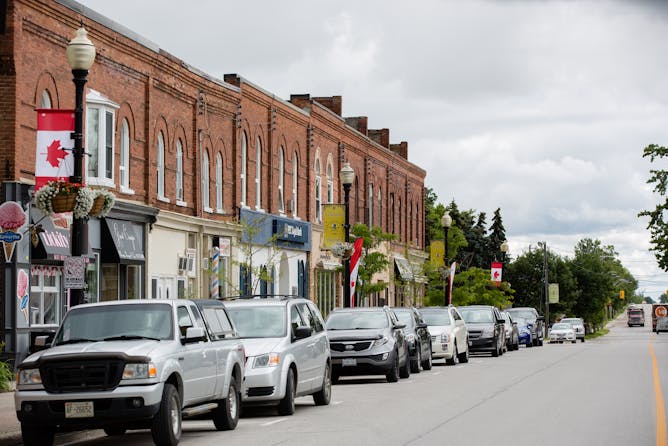|
The society-wide changes we have seen through the pandemic, as well as the emergence of the zoonotic virus itself, have prompted more than a few references to the sorts of dystopic visions foreseen by novelists. For many businesses trying to make ends meet today and plan for the future, there are significant challenges and unknowns.
Today in The Conversation Canada, Nada Elnahla and Ruth McKay of Carleton University explore how business managers can turn to novels for scenario planning. Their research uses Aldous Huxley’s 1932 novel Brave New World to explore possible scenarios related to situations that are usually kept confidential, such as employees’ mental health and drug use.
They offer an action plan for using novels to “study sensitive workplace issues that could help generate new knowledge, lead to envisioning ways to act appropriately and develop future strategies.”
Also today:
All the best.
|

It’s a brave new business world, so turning to novelists can help explore possible future scenarios.
(Shutterstock)
Nada Elnahla, Carleton University; Ruth McKay, Carleton University
Reading fiction can help business managers study sensitive workplace issues in an exploratory way, without the challenges of collecting employee data.
|

Travel in to and out of small and rural communities is spreading COVID-19.
(Shutterstock)
S. Ashleigh Weeden, University of Guelph
Regional and inter-provincial travel have contributed to the spread of COVID-19 in small and rural communities. Restricting people's movement is more challenging than it seems on the surface.
|

Employees are often reluctant to speak up at work. But if they make efforts to research their ideas and ensure they benefit the organization, it benefits both workers and employers.
(Unsplash)
Kyle Brykman, University of Windsor; Jana Raver, Queen's University, Ontario
Studies consistently show that many employees are reluctant to speak up at work, and are even hardwired to remain silent. How can we help people voice their opinions more effectively?
|

Simply making an effort to consider the person behind the mask can help address the biases exacerbated by wearing one.
(Shutterstock)
Robin Blades, University of Toronto
Wearing face masks hides our facial expressions and affects our social interactions. They make it harder for us to read facial expressions and can contribute to racist perceptions.
|

Sur cette photo datant de juillet 2020, l'ancien président Donald Trump se tient devant une image du Mont Rushmore, dans le Dakota du Sud, où ont été sculptés dans la pierre les visages des présidents Theodore Roosevelt, Thomas Jefferson, George Washington et Abraham Lincoln.
Photo AP/Alex Brandon
Ronald W. Pruessen, University of Toronto
Ils ont écrit leurs mémoires, fondé des œuvres charitables, construit des bibliothèques… voici ce qu’ont fait d’anciens présidents après leur départ de la Maison Blanche. À quoi s’occupera Trump ?
|

Une vue extérieure du marché de Wuhan, là où les premiers cas de Covid-19 ont été recensés. Mais les origines de la pandémie demeurent mystérieuses.
Dake Kang/AP
Dominic Dwyer, University of Sydney
La politique a pris beaucoup de place dans la mission d’enquête sur les origines virales de la Covid-19, en Chine. Il est facile d’oublier que derrière ces enquêtes se trouvent de vraies personnes.
|
|
|
Culture + Society
|
-
Daniel Jolley, Northumbria University, Newcastle; Karen Douglas, University of Kent; Yvonne Skipper, University of Glasgow
We now know a lot about what makes adults fall into conspiracy theories but investigations into how the pull in young people are only just beginning.
|
|
Podcasts
|
-
Gemma Ware, The Conversation; Daniel Merino, The Conversation
Plus new research finds a way to speed up the search for dark matter. Listen to episode 4 of The Conversation Weekly.
|
|
Arts
|
-
Peter S. Field, University of Canterbury
Trump might have popularised the idea of fake news, but 26 centuries ago Plato and Thucydides were convinced intellectuals and poets were duping the people and undermining democracy.
|
|